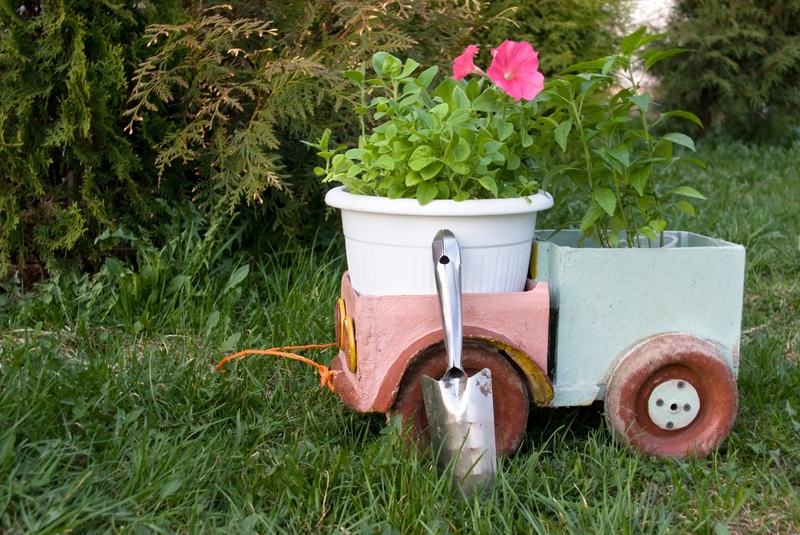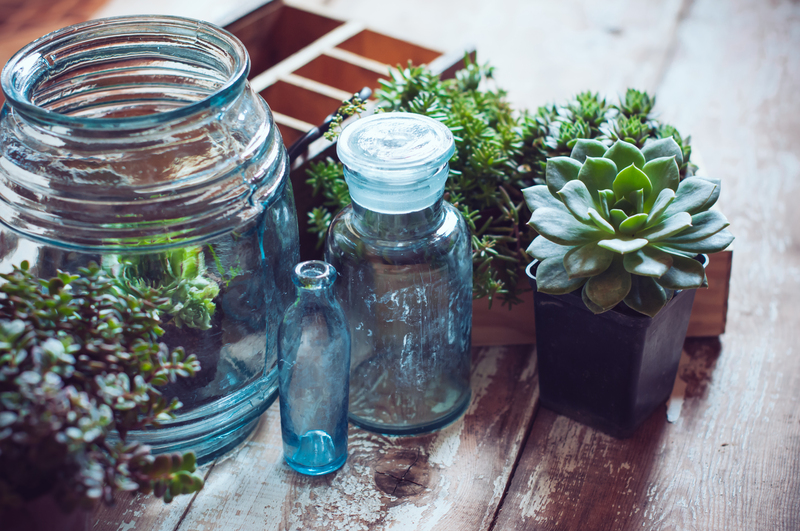Sustainable Plastics: The Role of Plants
Posted on 11/03/2025
Plastic pollution is one of the most pressing environmental issues of our time. Traditional plastics, derived from non-renewable fossil fuels, contribute to greenhouse gas emissions and take decades, even centuries, to degrade. However, sustainable plastics, often derived from plants, offer a promising solution. This article delves into the role of plants in the production of sustainable plastics, exploring their benefits, limitations, and future prospects.
What are Sustainable Plastics?
Sustainable plastics, also known as bioplastics, are derived from renewable biomass sources such as plants. Unlike conventional plastics, which are made from petroleum, bioplastics can significantly reduce our environmental footprint. These materials can be biodegradable or compostable, better aligning with the principles of a circular economy.

The Role of Plants in Sustainable Plastics
Plants play a crucial role in the production of sustainable plastics. They act as the primary raw material source for bioplastics, providing an alternative to petroleum-based products. Common crops used for these purposes include corn, sugarcane, and potatoes. These plants undergo processing to extract sugars and starches, which are then converted into bioplastics through microbial fermentation and polymerization.
Types of Plant-Based Plastics
There are several types of plant-based plastics, including:
PLA (Polylactic Acid):
Derived from fermented plant starch (usually corn), PLA is used in various applications, from packaging to medical devices.
PHA (Polyhydroxyalkanoates):
Produced through the bacterial fermentation of plant sugars, PHAs are used in applications ranging from packaging to agricultural films.
Starch Blends:
These are directly derived from native starch and can be blended with other biodegradable polymers for enhanced properties.
Benefits of Plant-Based Plastics
1. Reduced Carbon Footprint: Plant-based plastics have the potential to significantly reduce greenhouse gas emissions. Since plants absorb CO2 during their growth, they offset the emissions released during the production and degradation of these plastics.
2. Biodegradability: Many bioplastics are biodegradable, breaking down into natural substances like water and CO2, reducing the long-term pollution caused by conventional plastics.
3. Renewable Resources: Unlike fossil fuels, plants are renewable. This ensures a more sustainable supply chain and reduces reliance on depleting fossil reserves.
4. Chemical Safety: Plant-based plastics often have fewer toxic chemicals than petroleum-based plastics, making them safer for individuals and ecosystems.
Challenges and Limitations
Despite their many benefits, sustainable plastics derived from plants face several challenges:
1. Cost: The production of plant-based plastics can be more expensive than conventional plastics due to current technological and infrastructure limitations.
2. Performance: While continuously improving, some bioplastics may not match the durability and strength of traditional plastics, limiting their applicability.
3. Agricultural Impact: Large-scale production of plant-based plastics could lead to land-use changes, impacting food supply and biodiversity.
4. Recycling Challenges: While biodegradable, many bioplastics require specific conditions to degrade properly, which may not be available in all waste management systems.
Tips for Supporting Sustainable Plastics
1. Educate Yourself and Others: Understand the differences between various types of plastics and their environmental impacts.
2. Choose Bioplastics When Possible: Opt for plant-based plastic products, especially those certified as biodegradable or compostable.
3. Support Innovation: Encourage policies and companies that invest in research and development of sustainable plastics.
4. Proper Disposal: Follow guidelines for composting or recycling bioplastics to ensure they degrade as intended.
Takeaways
1. Sustainable plastics offer a promising solution to the plastic pollution crisis.
2. Plants are a renewable and environmentally friendly source for bioplastic production.
3. While beneficial, plant-based plastics face cost, performance, and disposal challenges.
4. Education and responsible consumer choices can drive the demand for and development of bioplastics.

Conclusion
The role of plants in the production of sustainable plastics is a beacon of hope in our fight against environmental degradation. Though challenges remain, the benefits of plant-based plastics, from reduced carbon footprints to improved biodegradability, cannot be understated. By supporting these innovations and making informed consumer choices, we can drive the shift towards a more sustainable and circular economy.
Pros and Cons
Pros:
1. Reduced carbon footprint.
2. Biodegradability.
3. Renewable resources.
4. Reduced toxic chemical usage.
Cons:
1. Higher cost of production.
2. Variable performance and durability.
3. Potential agricultural impact.
4. Recycling and disposal challenges.
Latest Posts
Resource Efficiency with Polystyrene Recycling
Essential Hacks for a Tidy Home




